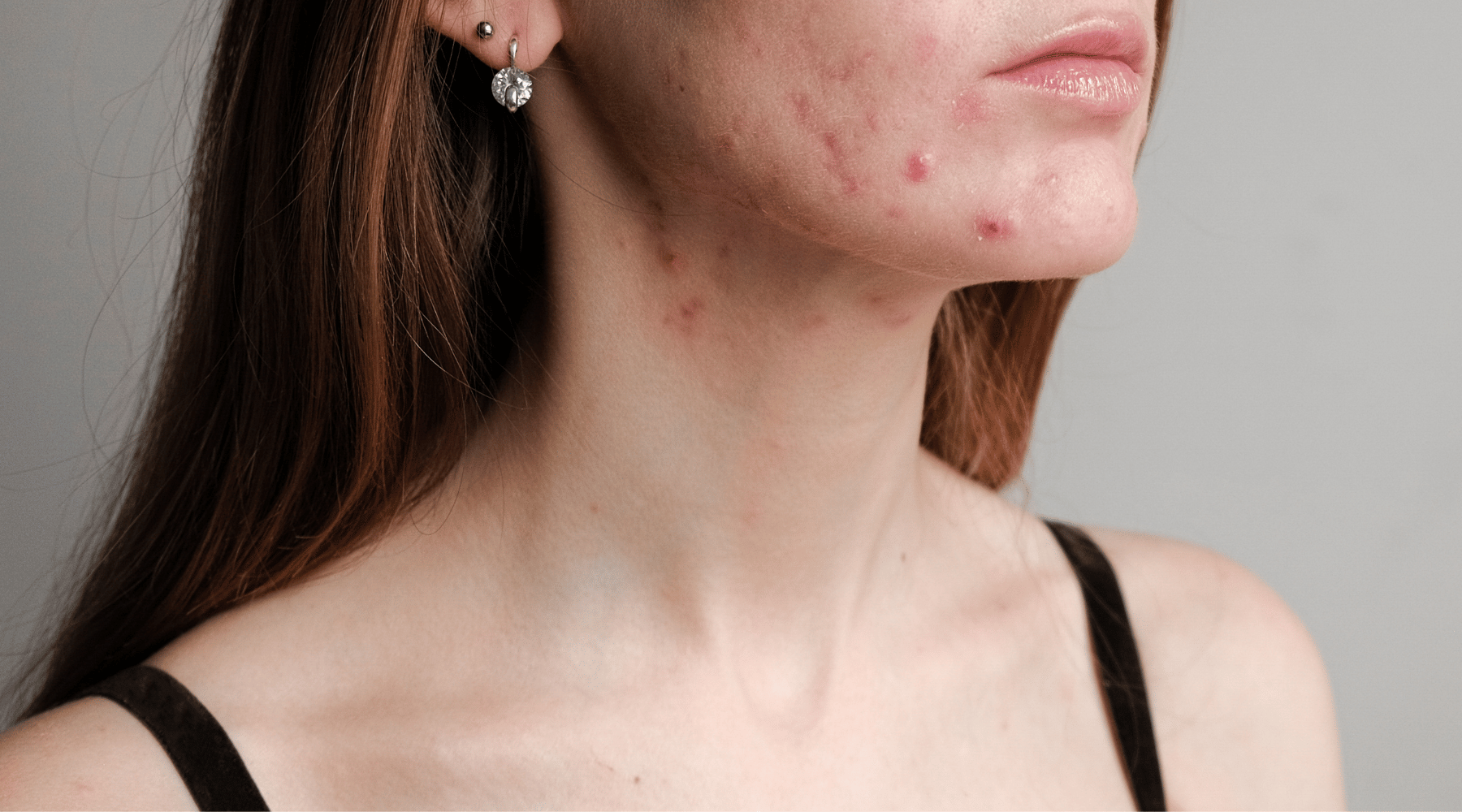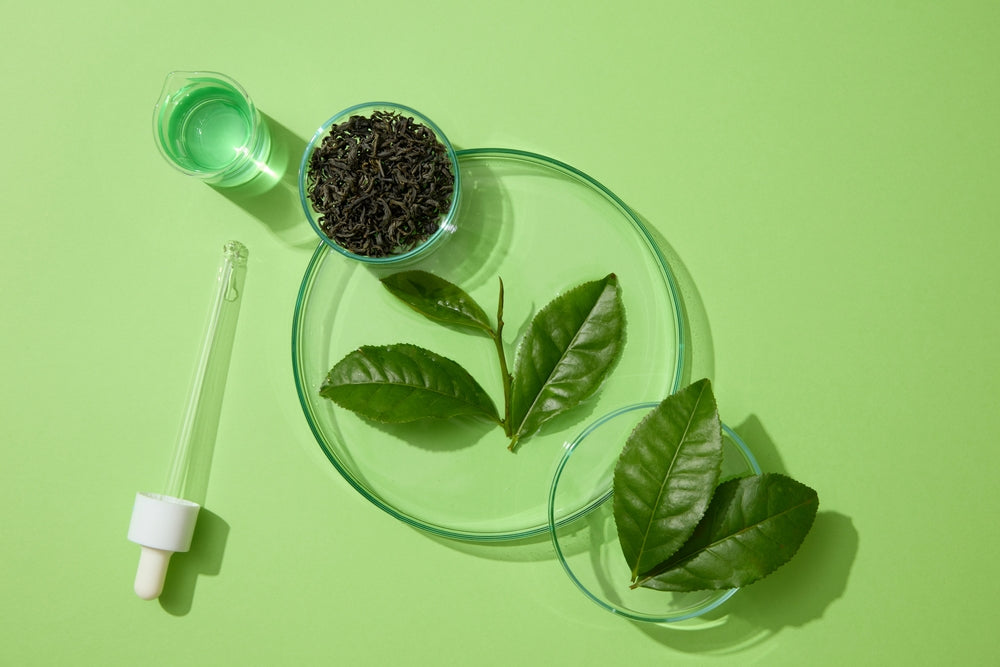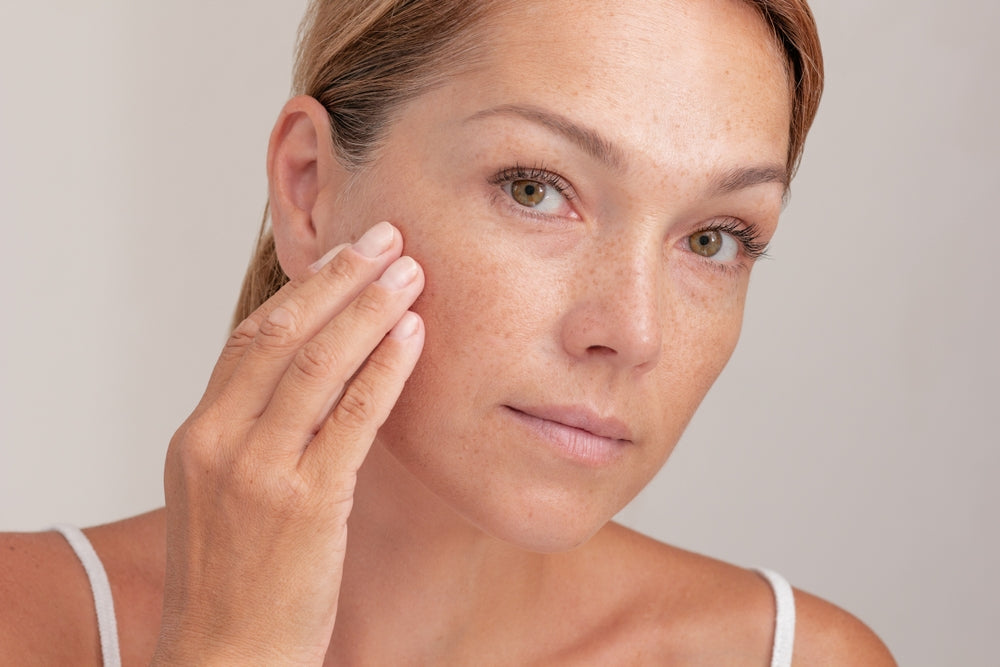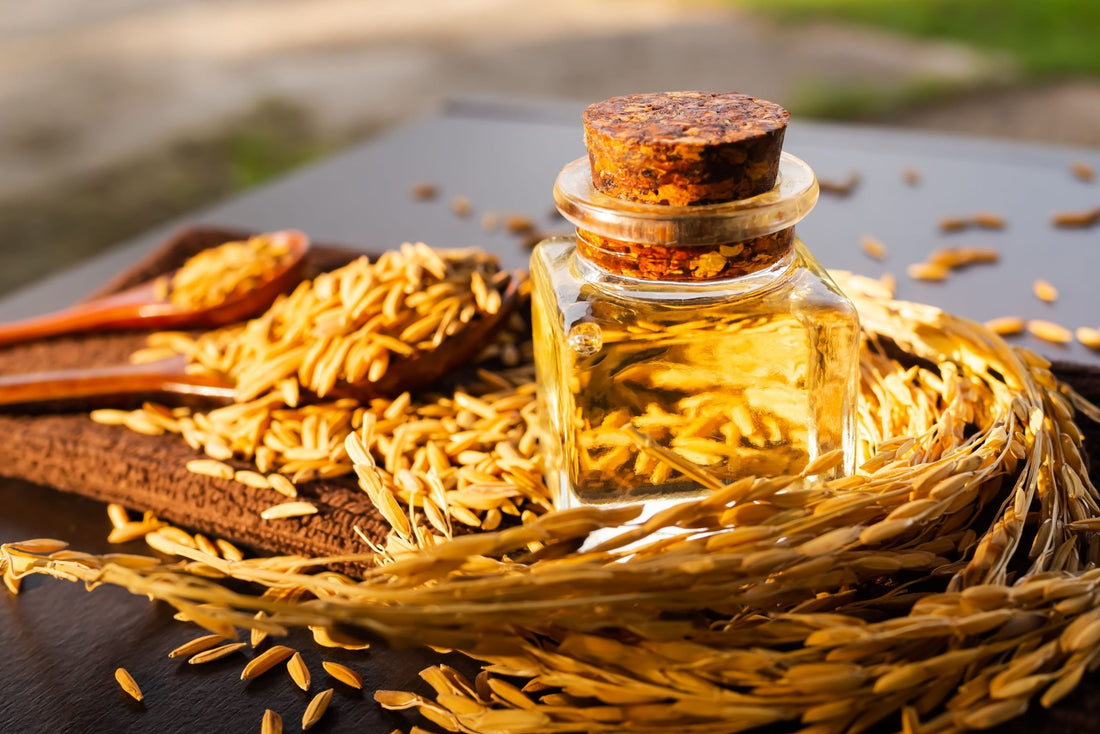Fungal acne and closed comedones are two common skin problems that are technically classified as acne, but only one is truly acneic. Here is everything you need to know about fungal acne and closed comedones so that you can determine which type of blemish you have for a proper regime.
WHAT IS FUNGAL ACNE?
Fungal acne is technically a type of folliculitis or inflammation of the hair follicles, not acne. However, it looks similar to acne and can often result in the same symptoms.
CAUSES OF FUNGAL ACNE
Fungal acne is caused by yeast in the follicle, resulting in an infection. If the follicle is blocked or becomes infected, your skin starts to produce more yeast. This production of yeast is what triggers fungal acne.
SYMPTOMS OF FUNGAL ACNE
One of the first signs that you may have fungal acne is that your skin does not improve with typical acne medication. Other symptoms include irritated and inflamed hair follicles, clusters that look like whiteheads (pus-filled bumps), redness, itchiness, and a stinging sensation. Fungal acne is often detected as small red bumps on the skin.
COMMON AREAS AFFECTED BY FUNGAL ACNE
Fungal acne can develop anywhere on the body where hair grows, but it most often develops on the cheeks, forehead, chest, and upper back.
WHAT ARE CLOSED COMEDONES?
Closed comedones (comedonal acne) are more commonly known as whiteheads. Although small white bumps are the most common formation of closed, comedones they can develop as small red bumps, similar to fungal acne. Closed comedones involve the skin pores being completely blocked. Open comedones, also known as blackheads, involve partially clogged pores on the surface of the skin.
CAUSES OF CLOSED COMEDONES
Closed comedones are caused by excess production of sebum oil in the skin mixed with dead skin cells and surface debris. This excess oil and surface debris collects in the pores of your skin and blocks the hair follicle, creating a small bump.
SYMPTOMS OF CLOSED COMEDONES
An important distinction between closed comedones and fungal acne is that comedones will not be inflamed or painful. They simply develop into small white, red, or flesh-colored bumps on the skin.
COMMON AREAS AFFECTED BY CLOSED COMEDONES
Closed comedones most often form on the chin and forehead, but they can develop on other areas of the face and the neck, chest, and back.
HOW TO COMBAT ACNE CONCERNS
A fungal infection causes fungal acne and is often not treatable with acne-specific treatments. To prevent developing fungal acne itself, you should wear loose-fitting clothing and shower regularly after sweating since hot and wet skin creates a breeding ground for this folliculitis. Fungal acne can be treated with antifungal medications applied topically or taken orally.
For comedonal and other forms of acne, the following ingredients and topical products can help dry out oily skin and exfoliate dead skin cells from the skin's surface:
- Salicylic Acid
- Glycolic Acid
- Azelaic Acid
- Benzoyl Peroxide
- Retinoids
HOW TO MINIMIZE THE LOOK OF ACNE
Epicuren Discovery has many skincare products designed for sensitive, acne-prone skin. If you want to reduce the appearance of acne and unclog pores, we recommend the following steps to maintain clear, healthy-looking skin.
CLEANSE REGULARLY
A gentle cleanser should be used twice daily—once in the morning and once at night—to remove dead skin cells and dirt that causes acne. Immediately after a sweaty workout, you should also purify the skin with a quick shower. Cleansing the skin regularly not only helps reduce the visible signs of acne but also helps maintain a glowing, healthy-looking skin tone.
USE THE RIGHT MOISTURIZER
Moisturizer is key for individuals with acne concerns. People with dry, combination, or oily skin should all use a moisturizer so that their skin is not tricked into overproducing oil. We recommend finding a light moisturizer tailored specifically to your skin type.
DRINK PLENTY OF WATER
Dehydrated, dry skin will trigger more oil production, leading to comedones and other forms of acne. Staying hydrated will maintain your skin’s healthy and radiant complexion.
EAT A HEALTHY, WELL-BALANCED DIET
Foods like dairy, chocolate, and sugary sweets can increase your risk of an acne breakout. To help prevent and reduce acne, try to incorporate plenty of greens and antioxidants into your diet.
AVOID CLOGGING YOUR PORES
Certain skincare products, makeup, and sunscreen can get trapped in the pores and cause acne. Look for oil-free or non-comedogenic products, and make sure only to apply a light layer that can be easily absorbed into the skin.
HIGH-QUALITY SKINCARE FROM EPICUREN DISCOVERY
To find the right products for your specific skin type and skin concerns, shop our acne products online or take a Skin Quiz. Our goal is to help you achieve the healthiest, most beautiful skin, free from acne!
FREQUENTLY ASKED QUESTIONS
ARE CLOSED COMEDONES PAINFUL?Closed comedones are typically not painful. If you have inflammation and pain around your skin bumps, you may have fungal acne or inflammatory acne.
HOW CAN I PREVENT CLOSED COMEDONES FROM FORMING?
Maintain a healthy diet, wash your face with a gentle cleanser and lukewarm water, and avoid skin or hair products with oils.
HOW LONG DOES FUNGAL ACNE LAST?
It often takes about 2-3 weeks for fungal acne to resolve. If the inflammation persists for over a month, you should schedule an appointment with your dermatologist for a stronger prescription.
HOW IS FUNGAL ACNE TREATED?
Fungal acne is mainly treated with oral or topical antifungal medications that can be found over the counter or prescribed by a dermatologist.





